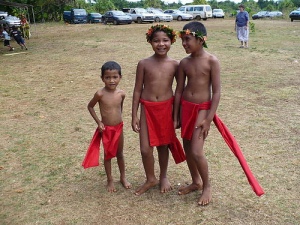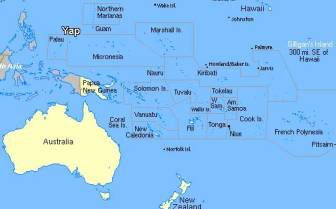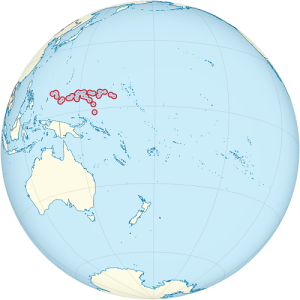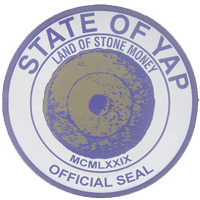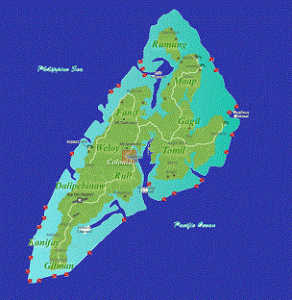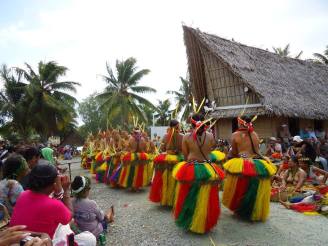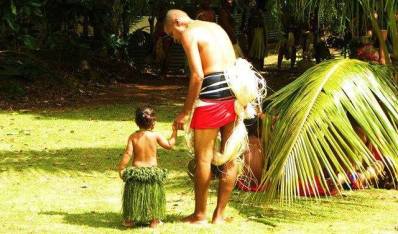I was born and raised on a tiny island called Yap. Yap Island is known to natives as “Waqab of Paradise”. As an islander, I always wanted to share my experience to whoever has interests in such lifestyles on an island. There is nothing advance that one can really learn about Yap, but we do have different ways of living on this island – a life from where I belong. Well, this is my chance to express a little that comes straight from my own perspectives unto the world. Again, this blog is dedicated to anyone who wants to know a little about an island boy like me, (uncivilized) and his simple and strange ways of living, too.
At the same time, I am very grateful to come across this amazing wordpress-website. Oh, and just for your curiosity, I am not one of those boys in the picture down below. But, hey, that is what Yapese boys should be wearing when they are on the islands eh?
Before I started creating this blog, I have it in mind to introduce my home in various yet specific platforms for readers to fully get the picture. It is for one and one reason only, that most people do not know anything (nothing at all) about this Island of Yap. People will be like, “What? Where the heck is Yap?” Yes. Yap Island do exist, and it was placed on this planet since God first created heaven and earth in the very beginning. *sigh* I admit it. I hated those moments when I have to explain things from the scratch whenever a friend threw me the “where are you from, friend?” question. Hmmmm… Tabrax ni GaaQ!
LOCATION AND GOVERNMENT
First, let me try to enlighten you a little about my home land, the Island of Stone Money. Like a tiny dot, Yap Island can be located between the Republic Islands of Palau and Guam (US) inside the western Pacific Ocean. From a region of the Caroline Islands beside the Philippine Sea, Yap Island became one of the Four States in the Federated States of Micronesia (FSM) after the World War 2 (1986). Yap Island is now a state of an independent country, at least this is what most people believe, that made an agreement with the United States government under the Compact of Free Association. Federated States of Micronesia is also using U.S. Dollars as their currency. A person from this nation does not require a visa whenever travelling to the United States of America (USA).
In my opinion, this is one of the advantages FSM really enjoys by this agreement between these two governments (USA and FSM). Yes, also I believe the Federated States of Micronesia is still functioning as a democrat type of governments.
STATE AND LANGUAGE
The Federated States of Micronesia consists of these four states: Yap, Chuuk, Pohnpei and Kosrae. Each of the Four States has its own local government, and they operate under the National government in Palikir, Pohnpei (Capital of the Federated States of Micronesia). Almost every citizen in this Nation can speak in English. The language, American-English, was set as the National Language, also it is a mean of communication internationally at the same time. Many different spoken languages have been used on each 607 islands. In fact, a Micronesian can speak various tongues – an average range of three to four dialects per person. Anyway, English is a common language for a foreigner to use whenever visiting the Federated States of Micronesia.
YAP PROPER
Yap State is not just an isolated, lonesome and little island with a whole land mass. For the reason Yap State has the several type of spoken languages, it comes with two separated parts. In other words, Yap State comes with its proper island and hundreds of outer islands/atolls. Four tiny islands come together and form what others refer to as Yap proper. Here are the four islands on Yap Proper from north to south and from the smallest to… smaller. First, Rumung Municipality is an isolated island that can be spotted at the far north of the Main Island. Second comes also an isolated island of Maap Municipality. Third island comes with both Gagil and Tamil Municipalities. Fourth and last island comes with the remnant of six out of ten municipalities on the Main Island; Fanif, Weloy, Dalipebinaw, Rull, Kanifay, and Gilman Municipalities.
STORY TELLER
I am one of those Yapese who grew up on the main island of Yap (Some may refer to Main Island as Yap Proper). Moreover, those Yapese who grew up on the main island speak in the same language that they tend to practice and grew up with when they were little. I think Yapese who grew up on the main island can easily communicate with one another, yet hardly communicate with other fellow Yapese who grew up on the outer islands. Likewise, Outer Islanders Yapese find it hard to communicate with others from the Main Island. I also think this is one big problem my government needs to settle, so it can bring solidity and unity among the people of Yap State. Through researches and studies, one may encountered and learned that a different language means a different types of culture, living and people. Well, this topic is leading you astray and this is not what this blog’s for.
Being a Yapese-Islander is different and somehow unique in particular ways. A Yapese-Islander may claim that he/she grew up with disciplines, which often started first inside the family, the village, the municipality, then onto the island to work as a whole. I can tell that we, Yapese, work in a unique system to live and carry on our lifestyle to the nearest future. Yapese has cultures and traditions like other people from other places. However; Yapese ancestors created and prepared a system for us, Yapese (esp. young generations), not just meant to keep and follow but to pass it on to the young ones. I always believe our ancestors did these things to have a better and great future ahead of us. Again, as a Yapese, I grew up to show and pay respect to everyone (mostly to older folks) while practicing my Yapese rights of living.
Living and growing on my island is simple and fun. I don’t have plenty material things, I don’t have any land properties, and I don’t even have my freedom sometimes, but I like how this “Yapese system” works onto me and so to everyone else living on the island. It doesn’t always refer to the government when I say Yapese system. Yapese system is similar to the Caste System in India. Also, I am not trying to insult anyone or trying to be a racist here. It is how other people started this system in the first place, and so I do have to continue with what they have provided. In this present time, Yapese System is fading away little by little due to westernized Ways of Living and, perhaps, Asian Ways of Living too. (to be continued)

